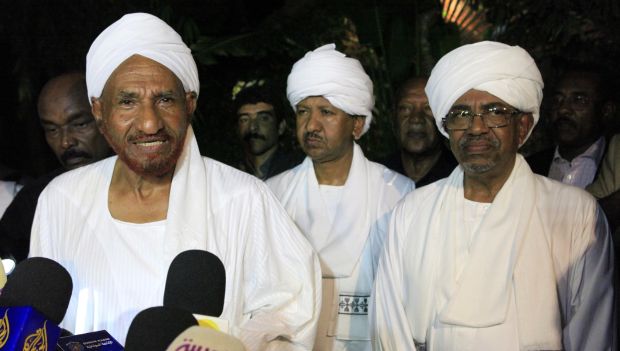That Sudan’s Islamist regime is using trickery and prevarication is not strange for a group that has made deceit and pretense a key part of its political culture. But a recently-leaked document highlighting what happened during a meeting between military, political and security leaders in Khartoum in late August reveals how far the regime is willing to go in order to maintain its grip on power.
The document was first leaked by Sudanese affairs specialist Eric Reeves, who obtained it from a Khartoum source he described as very reliable. It documents the proceedings of a meeting attended by 14 of the most prominent military, political and security figures in the Sudanese regime. Regardless of any attempt on the part of the regime or its supporters to question the document’s veracity, anyone with any experience of Sudan’s government will find it an accurate reflection of Sudan’s domestic and foreign policy. It also reflects the regime’s approach to staying in power, an approach that is based on maneuvering and deception.
On the foreign policy level, the document reveals the nature of the regime’s ties with Iran, the Gulf’s Arab states, Egypt, and the Muslim Brotherhood. The Khartoum regime, as the deliberations between its senior figures confirm, seeks to deceive concerning its ties with the Gulf states and Iran. On the one hand, it maintains its ties with Tehran, which it considers a strategic asset and not subject to change. On the other hand, when it comes to relations with Saudi Arabia and the UAE, Khartoum wants to appear as if it is opposed to Tehran. This casts new light on Khartoum’s recent decision to order the closure of Iranian cultural centers in Sudan. The purpose, the document confirms, is to mislead the countries that have shown concern over Sudanese-Iranian ties, and at the same time contain domestic and foreign outrage over what has been described as the spread of Shi’ite proselytism in Sudan. Those who were present at the meeting were unanimous about the importance of Sudan’s military and security ties with Iran, which they described as “the most important in the history of the country.” In fact, one of the attendees went as far as to say that the secret behind the strength of the current regime lies in its alliance with Iran and the Islamist movements, arguing that the country will lose much should anything compromise these ties.
The Sudanese regime is trying to mislead as much as it can, but at the end of the day the country depends on its ties with Iran and the Islamist movements more than with the Gulf states, save Qatar. This trend is nothing new. The regime has adopted this approach since its first year in power, when it sided with Saddam Hussein’s regime following the invasion of Kuwait, a stance many Brotherhood-affiliated groups also adopted. Therefore, it is not inconsistent with the Sudanese regime’s approach that its military, political and security leaders insist on maintaining ties with Iran and the Brotherhood, and prioritize them over the country’s historical ties with its Arab neighbors and the Gulf states, where three million Sudanese nationals work.
The regime’s ties with Islamist movements started a feud with Egypt so bitter that it got involved in an assassination attempt against former Egyptian President Hosni Mubarak in 1995. The recently-leaked document confirms that the feelings of hostility are still lurking and may have started to resurface after the overthrow of the regime of the former President Mohamed Mursi and his Brotherhood-affiliated regime. The document confirms the presence of Egyptian Brotherhood members in Khartoum and the regime’s attempt to scatter them in more than one place, at the same time keeping them under surveillance for fear their ranks may be infiltrated. The document also reveals that Turkey has been bankrolling these efforts. The officials’ remarks at the meeting signal that ties with Egypt will be further disturbed over the Sudanese regime’s joy at Islamists, some of whom it has armed, assuming control over Tripoli. In fact, one of the attendants crowed that Egypt is well aware of what Khartoum can do with the help of Qatar now that parts of Libya are in the hands of Islamists.
On the domestic level, the document confirms what every wise observer already knows—that the regime is manipulating the opposition and employing talk about dialogue and reconciliation to gain time and fragment its political opponents. In fact, the regime desires to use talk about dialogue to legitimize the presidential and legislative elections scheduled for next year.
The attitude of the regime, which is already well-known, is not strange. But what I find strange is the position of the opposition, because it always falls victim to the regime’s tricks and gambits. The regime’s talk about dialogue and reconciliation is nothing new either, and the meetings with the opposition have become a well-known tactic the regime has employed on several occasions to drive a wedge into the ranks of its opponents. What makes some of the opposition welcome the regime’s call for a dialogue they already know is neither credible nor serious? This is a different story that needs to be addressed in another article.

Trackbacks/Pingbacks